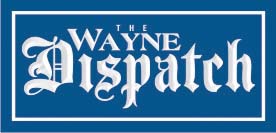Oakwood prepares for possible Ebola cases
If Ebola is diagnosed in Michigan, Oakwood Health hospitals and staff are prepared and have a comprehensive system-wide approach. Oakwood Hospital-Wayne conducted an Ebola Preparedness drill last month as part of its regular cycle of emergency response training.
Emergency room and infectious disease medical staff tested their ability to treat a highly communicable disease and keep it from spreading throughout southeast Michigan.
Oakwood-Wayne worked in conjunction with Wayne County Metropolitan Airport fire department and Wayne County health department to evaluate exercise.
“For many years, Oakwood has been operating under best practice in the area of infection prevention and preparedness for highly contagious diseases,” said Dr. Rama Thyagarajan, Oakwood Corporate Medical Director of Infection Prevention and Control. “Due to our proximity to the airport and our large service area, we have trained and prepared key areas of our operations in proven methods of identifying and isolating a patient with a highly communicable disease. Southeast Michigan residents should rest assured that Oakwood is ready to address such a situation should it ever arise.”
Although most agree that the likelihood of such a situation is remote, Oakwood Health has a preparedness plan to identify and address any patients who might enter the system with any highly contagious disease such as Ebola.
Oakwood has a four-pronged approach with a goal of identifying and isolating suspected patients as early as possible to prevent further transmission of the disease. It includes:
Universal Patient Travel/Symptom Screening identifies risk based upon whether a new patient has traveled outside of the U.S. within the last 21 days. This is asked of all patients entering the emergency room. If they answer yes and indicate they have traveled to any of the countries in West Africa in the past 21 days and are showing symptoms, a nurse is notified and places them immediately in an airborne and contact isolation. Then they alert the physician and the infection control department.
Continued clinician and patient/visitor education
Immediate educational material is distributed to all staff, patients and visitors when a possible health threat has been suspected or identified.
Collaboration
Oakwood has an active collaboration with key public health agencies and partners such as Detroit Metropolitan Airport, the Center for Disease Control, Wayne County and all local EMS groups.
Isolation
If the screening assessment indicates a patient might have a highly infectious disease like Ebola, there is a specialized protocol. Facilities will be available to immediately isolate the patient.
While Oakwood officials are reassuring the public that its system has the appropriate measures to deal with viruses like Ebola, they also strongly encourage residents to be mindful of more immediate health risks such as the influenza virus and taking the necessary steps to prevent it such as with hand hygiene and vaccination.
Facts on Ebola
Here is some helpful information provided by Oakwood Healthcare.
What is Ebola?
Ebola is a rare and often deadly disease caused by infection with an Ebola virus – there are five strains. This current Ebola outbreak is the largest due to the nature of where it struck in three very impoverished countries with poor healthcare infrastructure and public health.
How does someone get it?
Ebola is spread through direct contact through broken skin or mucus membranes with blood or body fluids including but not limited to urine, saliva, feces, vomit of a person who is sick with Ebola. The virus is spread through direct contact with any objects that have been contaminated (needles or syringes) with the virus. It is not spread through the air, like many other more common viruses. A person is only contagious when symptomatic.
Who is at risk and is there a danger of Ebola spreading in the United States?
Only people who have recently traveled to West Africa or have had close contact with someone who has traveled there and is symptomatic are at risk. The risk of it spreading in the U.S. is very low. We have a totally different context of health care in the U.S. compared to those in impoverished nations. We are much more prepared to handle any kind of suspected Ebola patient and prevent further contamination, given our strong health care system and the resources we have to contain these patients and properly isolate them.




